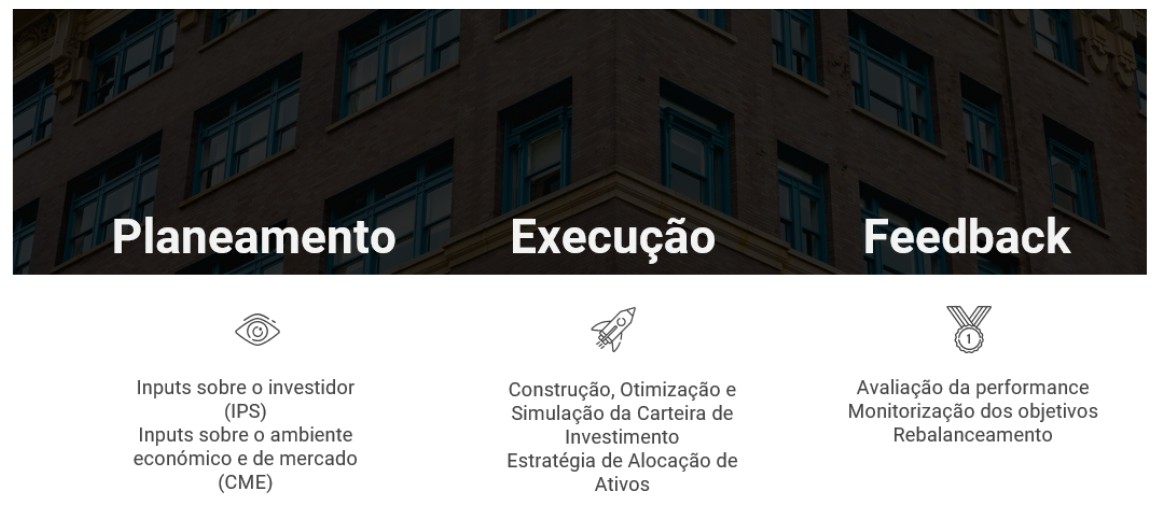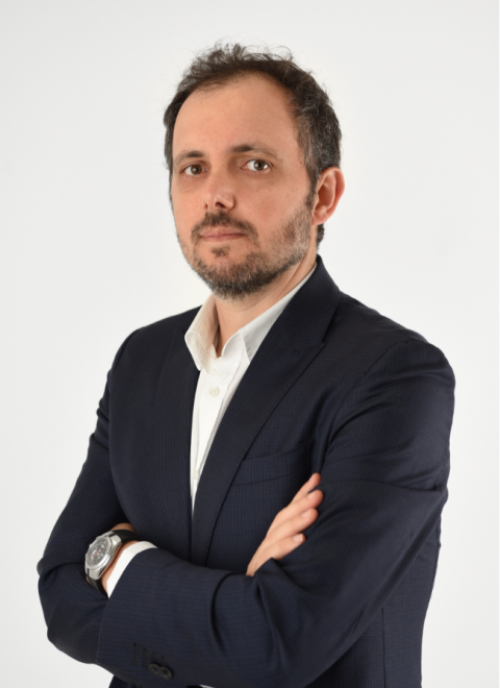A Future Proof Investment philosophy
More than chasing returns, Future Proof's investment philosophy is to help investors make investment decisions taking into account their objectives, their tolerance for risk and their preferences and restrictions.
In this article, we cover:
- Investment Policy
- The Financial Advisor's Value Proposition
- Rules for selecting a Financial Advisor
- Goals-based advice
INVESTMENT POLICY
The investment approach, aligned with the investor and based on their objectives, risk tolerance, preferences and restrictions, goes through 3 phases: Planning, Execution and Feedback.
- In the planning stage, information about the investor, his objetivosgoals and,preferences, the heritage (human and financial capital) must be collected. In terms of preferences and restrictions, we highlight the liquidity, time or temporal horizon of investment, the fiscal situation, the regulatory framework and other unique circumstances that may affect the investor's life plan. Also at this stage, we project and analyze data on the economic and market environment. This analysis is carried out taking into account the time horizon of the investor's investment.
- The next phase is execution. We moved on to the effective construction of the investment portfolio and the answer to the questions of where to invest and how to invest. We use optimization, simulation, comparison and analysis models for the selection of investment assets suitable for the investor.
- Finally, the feedback phase is the phase where performance is evaluated. We monitor the defined objectives, proceed to the rebalancing of the portfolio and, if necessary, the revision of the Investment Policy.

The investment policy is the document in which this personalized approach is systematized and in which the investor's relationship with the financial advisor and other financial intermediaries is defined.
It is in this document or statement where the objectives, risk tolerance and personal characteristics of the investor are established, ensuring clarity in communication and in the expectations and benefits for the parties involved.
Future Proof's investment philosophy is also based on an ethical commitment. The professionals of Future Proof act in accordance with the Code of Ethics and Standards of Professional Conduct of the CFA Program, the most recognized certification in the financial area at the international level.
In an industry fraught with complexity and even opacity, we strive for unbreakable ethical values and commitments: trust, competence and transparency.
THE PROPOSAL FOR THE ADVISOR'S FINANCIAL VALUE
The role of the financial advisor is changing rapidly. If in other countries, where financial literacy indices are higher, the financial advisor is a figure present alongside many investors, families and organizations, in Portugal it is now gaining importance.
In addition to the very demanding specific technical skills, the Financial Advisor for the future must also have the capacity for adaptation and communication and an unshakeable ethical commitment. A holistic view of the world economy and society, understanding the trends and specificities of each investor with a focus on digitization, transparency in relation to regulators and financial intermediaries and oriented towards personalization.
In this article on the Collaborative Fund blog, Morgan Housel says that people continue to make the same mistakes of centuries, crisis after crisis, along with the dangers of behavioral mistakes such as overconfidence.
Therefore, more than an asset manager or a return manager, the Financial Advisor must today be a risk manager and an investor's ally, committed to his or her plan.
The Financial Advisor must highlight the role of the investor as the main manager and interested in its assets and in its investment plan.
The Financial Advisor's value proposal includes the following actions:
- Helping in the creation of the long-term financial plan with a focus on the service and not the product;
- Behavioral and financial coaching, maintaining the rigor and discipline of the investment plan;
- Develop the strategic allocation of assets suitable for each investor;
- Control the costs of implementing the strategy;
- Location and taxation of investments;
- Ensure the rebalancing of the investment portfolio;
- Integration and reporting of the investment portfolio against the defined plan.

A 2019 whitepaper by Vanguard points out that the advisor's ability to help investors avoid behavioral errors such as short-term viewing and focusing on past returns can represent an additional 2 percentage points per year in the return of a long-term portfolio .
SO WHAT GOLD RULES SHOULD WE HAVE TO SELECT A FINANCIAL ADVISOR?
We must first think about whether we need a financial advisor and if so, what services do we need.
There are investors who are lonely and manage to develop all the work themselves, but the vast majority do not. There are investors who need more support in the definition of the investment strategy, others in the selection of cheaper and tax-efficient alternatives, others as support for the fulfillment of the defined investment plan.
Then we must select the type of consultant and determine what we can pay. There are financial advisors linked to other financial intermediaries, such as the case of linked agents (Future Proof is a linked agent of Banco Invest). There are also investment consultancy companies, asset management companies and other intermediaries that provide investment services, which can be consulted here and here.
Look for references or news about the investment company and its professionals and the regulators themselves, always checking the credentials of the financial advisor.
Then schedule a meeting and go prepared with the most relevant issues for your long-term financial plan.
GOALS-BASED ADVICE
Summarizing all these characteristics of the financial advisor, we assume a "goals-based" investment philosophy.
In a market environment very focused on the product and the offer (product-driven advice), we believe that the philosophy most aligned with the investor is advice based on objectives and goals to be achieved.

Goal-based financial planning - goals-based advice - allows the investor to define multiple financial goals over several investment time horizons at the same time that the construction of the investment portfolio is oriented towards each of these goals.
Setting goals makes investors less likely to react to market variations. If we are working towards a goal or objective, and not looking for returns to beat the market or a benchmark, rash and emotionally based decision-making is substantially reduced.
Therefore, for us, and as very well summarized by Daniel Kahneman, an advisor must be a person who likes the investor and does not care about his feelings. All these factors shape a Future Proof investment philosophy.

Vítor is a CFA® charterholder, entrepreneur, music lover and with a dream of building a true investment and financial planning ecosystem at the service of families and organizations.
+351 939873441 (Vítor Mário Ribeiro, CFA)
+351 938438594 (Luís Silva)
Future Proof is an Appointed Representative of Banco Invest, S.A.. It is registered at CMVM.

